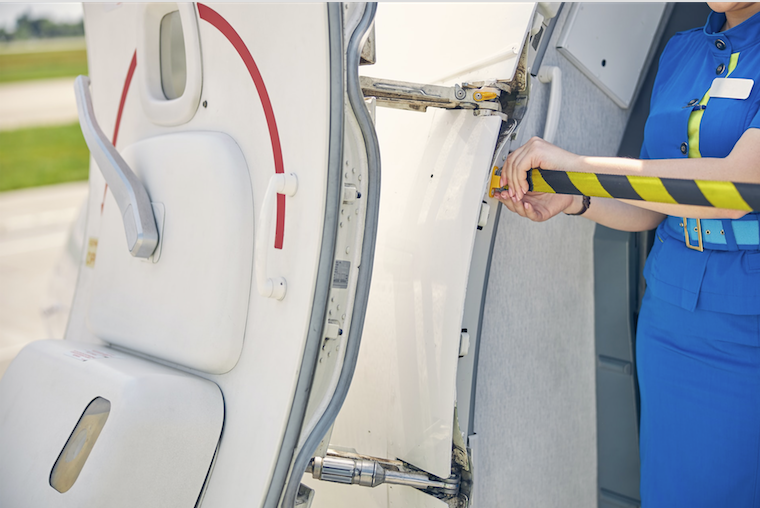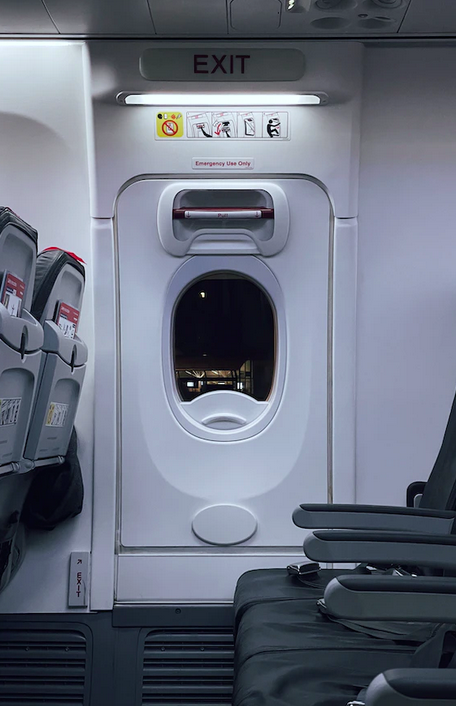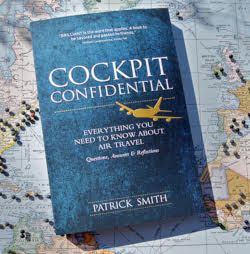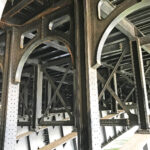Open Door Policy

May 31, 2023
LAST WEEK, a distraught passenger opened an emergency door aboard an Asian Airlines flight as it prepared to land on the Korean holiday island of Jeju. A dozen people were injured in the ensuing melee.
Numerous readers have sent unfriendly emails taking me to task for statements I’ve made in the past about the ability to open a door in flight. Specifically, we turn to chapter five in my book, where one beholds the following:
You cannot — I repeat, cannot — open the doors or emergency hatches of an airplane in flight. You can’t open them for the simple reason that cabin pressure won’t allow it. Think of an aircraft door as a drain plug, fixed in place by the interior pressure. Almost all aircraft exits open inward. Some retract upward into the ceiling; others swing outward; but they open inward first, and not even the most musclebound human will overcome the force holding them shut. At a typical cruising altitude, up to eight pounds of pressure are pushing against every square inch of interior fuselage. That’s over 1,100 pounds against each square foot of door.
Well, yes and no, the over-confidence of that first sentence being the main offense. What I describe is basically correct, but as a plane descends, the pressure differential lessens, eventually dropping to zero at the point of touchdown. When very close to the ground, the “weight” holding the doors shut may in fact be negligible enough to permit a door to open. In the case of Asiana, the Airbus A321 was at only 700 feet; just a minute or so from the runway.

The book further states…
Even at low altitudes, where cabin pressure levels are much less, a meager 2 p.s.i. differential is still more than anyone can displace — even after six cups of coffee and the aggravation that comes with sitting behind a shrieking baby. On the ground, the situation changes—as one would hope, with the possibility of an evacuation . During taxi, you will get the door to open. You will also activate the door’s emergency escape slide.
While the part about being on the ground is true, there’s a difference between low altitudes and very low altitudes. I should’ve made this clear. If my publisher is kind enough to move forward with a third edition, I’ll revise this entire Q&A.
What I was trying to do, a bit too eagerly, is dispel the idea of opening a door during cruise, creating the sort of disaster movie situation that people envision when this topic arises: the one of complete chaos, with people getting sucked through the hole. That can’t happen. What can happen, though, is what happened aboard Asiana.
Fortunately, the very ability to get the door open also means that nothing catastrophic will occur. It’ll be noisy and scary, and unsecured objects could get whipped around; but without any serious pressure differential, nobody’s getting sucked out.
Photos courtesy of Unsplash.



